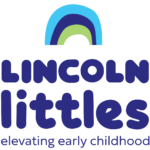Lincoln families – specifically those with small children – have felt the impacts of poverty and childcare costs over the last few years – according to the Lincoln Vital Signs report, released in October, 2022 from the University of Nebraska Public Policy Center.
This is the fifth version of the report, which was last published in 2019, and compiles available data to show how our city is changing over time.
Several key findings related to Lincoln’s early childhood education.
First, we look at what is impacting families. The poverty rate in Lincoln is higher than the rest of Nebraska but slightly lower than the national number. Lincoln has three extreme poverty census tracts. In comparison, there were seven tracts ten years ago, zero in 2020. (Census Tracts in extreme poverty are generally considered to be those with more than 40% of residents in poverty.)
The use of free/reduced lunch at school is increasing. Additionally, 45% of households who rent are cost burdened, which means that 30% or more of their income goes toward housing.
Lincoln parents are working, with 77% of children having all parents in the workforce. This is much higher than the national average of 68%.
Families are paying significantly more for childcare, a cost that doubled between 2012-2021. In fact, a year of early childhood care is higher than a year of tuition at the University of Nebraska. This is likely driven by a variety of factors, including workforce shortage and inflation.
One of Lincoln Littles’ key priorities is to support early childhood providers. A recent survey showed that the average provider has 10 children on the wait list. Meanwhile, despite efforts from providers to support their workers, staff is turning over due to low wages and lack of benefits. The impact of the staff shortage results in greater burnout among existing staff members and fewer children served.
In November, Lincoln Littles hosted a community presentation of more than 125 stakeholders. Attendees learned the most recent Vital Signs findings and presenters discussed issues and ways the community may be able to help. The three Lincoln Early Childhood Network (LECN) groups including; Comprehensive Health, Support for Families, and Access to Quality Care and Education presented information regarding their past and future projects. More information about these workgroups and how to participate can be found on the LECN website.
Lincoln Littles is looking into ways to improve the staff shortage. Initiatives are underway to provide wellness relief for child care workers. A Workforce Navigator is being hired to develop community relationships and work with local childcare employees to begin building strategies to address wellness needs, encourage retention, and recruit additional employees.
But changes in policy are also critical. First Five Nebraska will work with lawmakers during the next Nebraska Unicameral session to try to renew and increase the School Readiness Tax Credit. They also hope to improve the efficiency of the fingerprinting process required of new childcare workers and potential create some health care benefits for workers.
Lincoln Littles and First Five Nebraska have formed a partnership aimed at business engagement. They are providing consulting to businesses interested in providing a solution to their employees’ childcare needs. The consulting includes gaining an understanding of employee needs, discovering policies that could be improved and helping to implement solutions. Currently, a priority is informing businesses of the $26 million worth of grants available for business partnerships to increase access to child care in Nebraska.
You can help! Watch the state Legislature when it convenes in January 2023 and contact your senators in regards to issues related to early childhood policy. Refer businesses interested in adding/supporting childcare options. Support Lincoln Littles!
